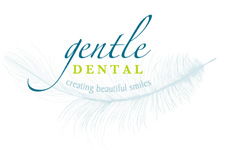 |
gentle dental |
|
| treatments: | gentle dental, cosmetic dentist salisbury | ||||||||||||||||
|
fresh breath Bad breath is experienced by most people at some time. It may simply be “morning breath” but can be a persistent chronic condition which affects a person’s everyday life and confidence. It is almost always caused initially by poor oral hygiene leading to a build up of excess bacteria in the mouth which give off smelly gases. So, contrary to popular belief, the following do not usually contribute towards the problem of halitosis: constipation, tonsils, tummy problems and food. If bad breath is making you self conscious we can help with hygiene and home care advice to ensure your teeth and gums not only look good but are healthy too. Here are our top tips for fresh breath:
Persistent problems with bad breath are often associated with gum disease and people who suffer from gum disease have four times the chance of suffering from bad breath or halitosis as those that don’t. So what is bad breath? Bad breath, otherwise known as oral malodour or halitosis, is a build up of gases produced by certain bacteria in the mouth. These gases form an unpleasant odour which is noticeable when one speaks or breathes out. Often this is worse after a night’s sleep especially if the mouth dries out. Most people suffer from this “morning breath” and this can be resolved by brushing. Research shows 55% to 65% of people have halitosis chronically and 95% at some time or other. Even when the sufferer is diligent with good oral hygiene, bad breath usually still comes from the “oral cavity”. Bad breath mainly occurs from an accumulation of bacteria which happens if the whole mouth, and not just the teeth and gums, is not cleaned thoroughly on a daily basis. Other conditions that can influence bad breath are illness, low fluid intake, stress and lack of salivary flow. How do you know if you have bad breath? It is notoriously difficult for anyone to detect whether they have halitosis. The best way to check if you have bad breath is to ask a family member, partner or a close friend for their opinion. Another simple way to check if you have bad breath is to lick your wrist, starting with the back of the tongue and wiping the whole of it over the inner wrist to the tip. Leave the saliva to dry for 10 seconds and smell the area for any unpleasant odours. Many people think they have a problem with halitosis when they don’t. Bad breath may persist even though you brush daily. People who have gum disease have more oral malodour than people without gum disease. If your gums have any redness, swelling or bleed at all on brushing then you have gum disease. An average of £350 million per year is spent in the U.K. on mouth fresheners that do not work or are not used correctly. They simply disguise one odour with another that lasts no more than 15 minutes. Mouthwashes alone will not solve the problem. If you have or think you have gum disease, proper assessment by a hygienist is essential to eradicate or halt the disease.
|
||||||||||||||||